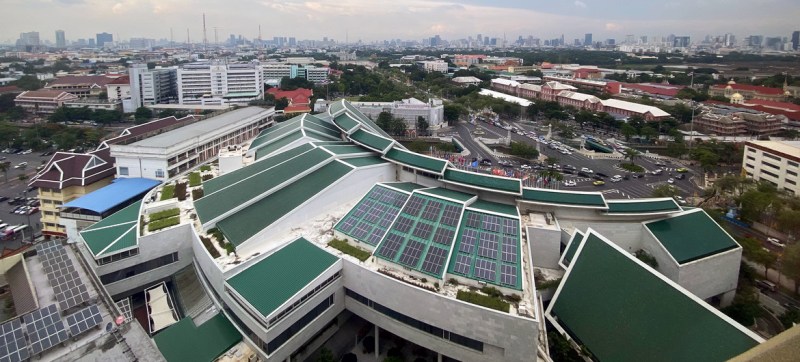 EnvionmentFootprint
EnvionmentFootprint UN makes progress on 'greening the blue'
New York: In 2019, the UN system continued to make steady progress towards reducing its environmental footprint, recording decreases in emissions and implementing advanced environment management systems.
According to the latest edition of the Greening the Blue report 2020, from the UN Environment Programme (UNEP), the UN system with its 310,000 personnel spread across some 60 entities, also found innovative ways to fund these initiatives.
Among the practical examples, the UN Children’s Fund (UNICEF) office in Uruguay upgraded its air conditioning system and replaced all lighting with energy-efficient LEDs using money generated from a 3 per cent air travel surcharge, used to finance or co-finance environment projects.
Thursday's report covers emissions for 2019. Therefore, the effects of the coronavirus pandemic on emissions are not yet factored in, and will be included in the 2021 edition.
The numbers
In 2019, the UN system as a whole logged some 6.5 tonnes of carbon dioxide equivalent (tCO2eq) per capita, down from 7 tonnes a year in 2018. In total, about 2 million tonnes of tCO2eq were emitted across the system.
Similarly, the system continued its efforts towards ensuring that no solid waste from UN facilities, operations or activities is causing pollution or harming the environment and local populations, generating on average, about 457 kilograms of waste per person.
The system also worked to conserve water and avoid the release of untreated wastewater into the environment. In 2019, the average water consumption was about 49 cubic metres per personnel.
Through the year, UN system entities also embarked upon ways to improve biodiversity, with offices and operations plating indigenous trees, hosting and taking care of local wildlife.
One such creature is a juvenile African Rock Python, making the grounds of the UN Office at Nairobi (UNON) its home.
2020 ‘a turning point’
The 2020 report also marks a key change, with a new strategy endorsed by UN’s top management to accelerate efforts across the board to “systematically integrate sustainable development considerations” into how the system operates.
This year, the Greening the Blue community also opened its membership to other intergovernmental organizations willing to follow UN system’s path towards emissions reduction.
The Green Climate Fund, which assist developing countries in climate change adaptation and mitigation practices, joined up, and its environmental information included in the report.
Another addition this year was gathering data on fossil fuels and ozone depleting substances. As this is a brand new entry into the report, it will be assessed and developed next year. As of reporting, about 70 per cent of the UN offices did not know which refrigerants they use, 20 per cent use non-ozone depleting refrigerants, and 10 per cent use them.
Support Our Journalism
We cannot do without you.. your contribution supports unbiased journalism
IBNS is not driven by any ism- not wokeism, not racism, not skewed secularism, not hyper right-wing or left liberal ideals, nor by any hardline religious beliefs or hyper nationalism. We want to serve you good old objective news, as they are. We do not judge or preach. We let people decide for themselves. We only try to present factual and well-sourced news.







